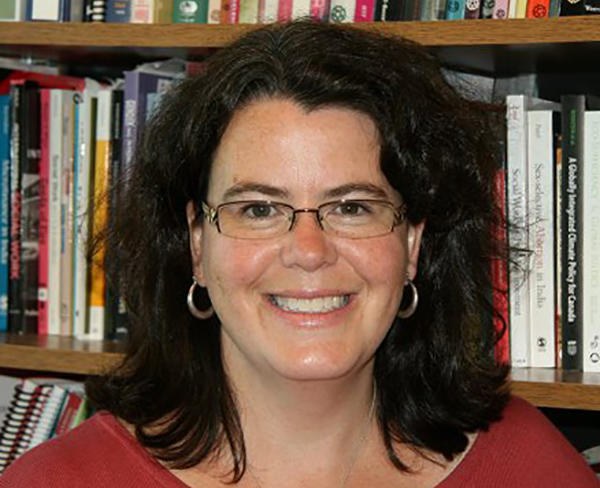
Julie Drolet leads a national project on social work field education.
Courtesy Julie Drolet
Aug. 9, 2019
Fieldwork experience is a required component in all undergraduate and graduate social work education programs across Canada. Students can get practicum experience in a number of roles such as working with a community association to design a program for seniors, working for AHS in a clinical setting, or working at a woman’s emergency shelter. Fieldwork can also include working in government with child and family services, working in private practice, or with an NGO internationally.
With an unprecedented growth in social work education programs and rising student demand for placements, field education is in crisis, as there are not enough placements for students.
This situation has culminated in field education co-ordinators from across Canada releasing a joint statement calling for educational institutions and the profession to find new ways of addressing this growing and significant problem. UCalgary social work professor Dr. Julie Drolet, PhD, is trying to solve this issue by leading a national project to tackle the rising issues through enhanced social work field education partnerships.
“The crisis is at a tipping point and needs to be addressed before it negatively impacts the learning needs of students and ultimately the ability of the profession to deliver quality services to our communities,” says Drolet.
Drolet recently received $1.98 million in funding for this project, titled Transforming the Field Education Landscape: Intersections of Research and Practice in Canadian Social Work Field Education, from the Social Sciences and Humanities Research Council (SSHRC) partnership grant. She is leading a team of 13 co-investigators, 51 collaborators, and 39 partners from Canadian and foreign post-secondary institutions.
“Social work impacts the lives of Canadians every day, and we are thrilled that Dr. Drolet’s work is a national initiative advancing education for students across the country, ” says, Dr. André Buret, interim vice-president (research). ”SSHRC funding invests in researchers in the social sciences and humanities who strive to improve our communities, and we are grateful for their support.”

Julie Drolet leads a national project on social work field education.
Courtesy Julie Drolet
She is also involving provincial, national and international social work associations; government departments; and private, public, and not-for-profit organizations.
“We are very excited to launch this new partnership in social work field education that focuses on training and mentoring of students. It is a critical development for social work education and the profession of social work in Canada and internationally,” she says. “There is a need for more sustainable practicum models to be developed and implemented.”
Social work is a profession concerned with helping individuals, families, groups and communities to enhance their individual and collective well-being. With approximately 50,000 social workers in Canada, the profession plays a critical role in the delivery of social services in the labour market.
Field instructors serve as mentors, teachers, and role models for practicum students by demonstrating the necessary knowledge, skills, attitudes, values and ethics required to be a practising professional through supervised application of practice in the field. Fieldwork is an example of experiential learning, and enables students to increase understanding, challenge and advance perspectives, clarify values, develop and hone their skills and promote new ways of thinking and doing.
The pressures of our rapidly growing global population are driving unprecedented changes in our social, political, cultural and natural systems. The University of Calgary's Human Dynamics in a Changing World research strategy is addressing our need to understand how we adapt to rapid change, to ensure our security and quality of life.